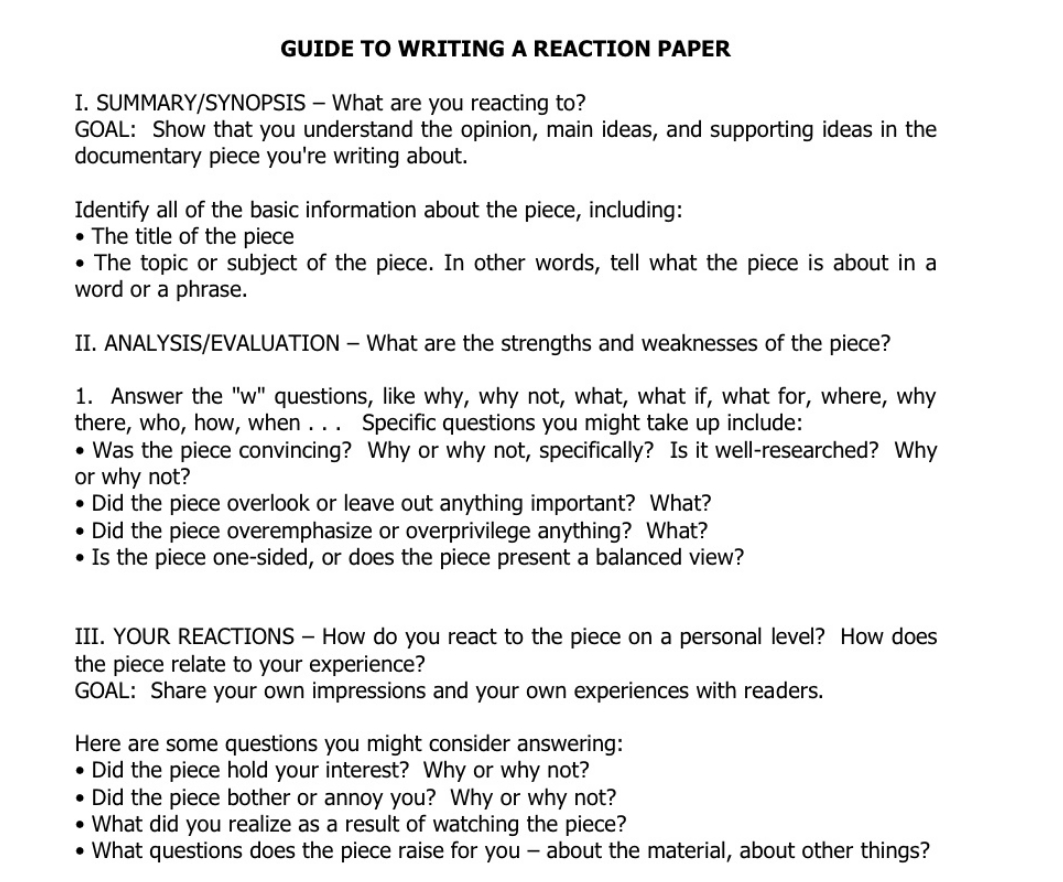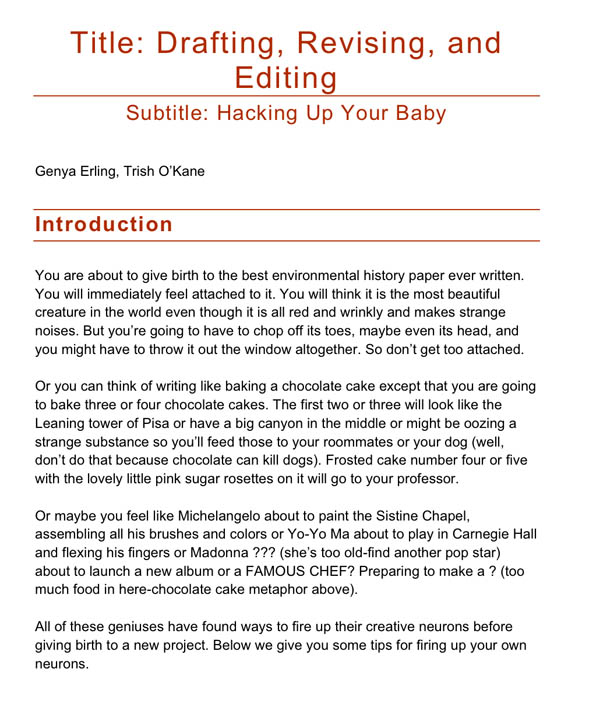/Sample-1-56a4b8c95f9b58b7d0d88543.png)
Related Posts
· Here are a few tips that can help you in completing the best reaction paper: Keep the first-hand knowledge of the article on which you are making your response or reaction paper. Contemplate the article, and make a note of the areas of the article that amused you towards writing. Highlight the main ideas and statements that you want to discuss You should always start your reaction paper with an introduction. It consists of the summary and the main questions you are going to discuss along the way. A perfect size of this section is three to four sentences. Don’t forget to provide all details about the author, title and main characters · A good way to approach this is by making a list of the main points you want to include and work backwards by mapping evidence in the form of quotations and examples to each of those points. If your instructor has given a specific prompt, make sure the reaction paper covers it accurately in the given word count. 3. Conclusion

Reaction papers examples
· Here are a few tips that can help you in completing the best reaction paper: Keep the first-hand knowledge of the article on which you are making your response or reaction paper. Contemplate the article, and make a note of the areas of the article that amused you towards writing. Highlight the main ideas and statements that you want to discuss · Tips and pointers on writing a reaction paper 1. Proofread for errors Regardless of how careful we are, we are always bound to make mistakes. Even if you feel your work is faultless, it is prudent to double-check your work. It is essential since it helps you correct any errors you may have made. It takes less than 10 minutes to proofread your work · Create a reaction paper outline. Write down ideas for the introduction and body paragraphs. Make a list of sources that can illustrate your position. Such a plan will help you keep keeping all thoughts in one place. Analyze the target audience. If only the teacher sees your assignment, check for the required items

Post navigation
· A good way to approach this is by making a list of the main points you want to include and work backwards by mapping evidence in the form of quotations and examples to each of those points. If your instructor has given a specific prompt, make sure the reaction paper covers it accurately in the given word count. 3. Conclusion · Create a reaction paper outline. Write down ideas for the introduction and body paragraphs. Make a list of sources that can illustrate your position. Such a plan will help you keep keeping all thoughts in one place. Analyze the target audience. If only the teacher sees your assignment, check for the required items · ·Use the first-person, we mean word ‘I’ while making reaction essays. ·Also, when you respond to the text, always back up your ideas and feelings with proofs from the text as well as with your own connection of ideas, texts, and overarching concepts
First Things First: What Is A Reaction Paper?
You should always start your reaction paper with an introduction. It consists of the summary and the main questions you are going to discuss along the way. A perfect size of this section is three to four sentences. Don’t forget to provide all details about the author, title and main characters · Here are a few tips that can help you in completing the best reaction paper: Keep the first-hand knowledge of the article on which you are making your response or reaction paper. Contemplate the article, and make a note of the areas of the article that amused you towards writing. Highlight the main ideas and statements that you want to discuss · Create a reaction paper outline. Write down ideas for the introduction and body paragraphs. Make a list of sources that can illustrate your position. Such a plan will help you keep keeping all thoughts in one place. Analyze the target audience. If only the teacher sees your assignment, check for the required items

How to write a reaction paper?
· Here are a few tips that can help you in completing the best reaction paper: Keep the first-hand knowledge of the article on which you are making your response or reaction paper. Contemplate the article, and make a note of the areas of the article that amused you towards writing. Highlight the main ideas and statements that you want to discuss · A good way to approach this is by making a list of the main points you want to include and work backwards by mapping evidence in the form of quotations and examples to each of those points. If your instructor has given a specific prompt, make sure the reaction paper covers it accurately in the given word count. 3. Conclusion · Create a reaction paper outline. Write down ideas for the introduction and body paragraphs. Make a list of sources that can illustrate your position. Such a plan will help you keep keeping all thoughts in one place. Analyze the target audience. If only the teacher sees your assignment, check for the required items
No comments:
Post a Comment